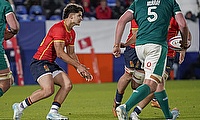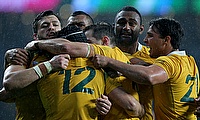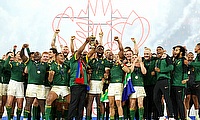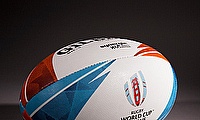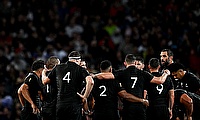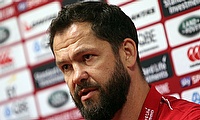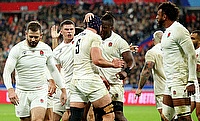A letter to World Rugby: Referee Existing Laws Before You Consider Creating New Ones
Dear World Rugby,
We know you’re not the most forward-thinking sports body in the world, but nevertheless you are in charge of the best sport on the planet.
It has been fascinating watching South Africa and England bridge the gap, and surpass the All Blacks in Japan in last year, however this seems to have resulted in World Rugby considering numerous rule changes to the game. Referring
New Zealand and Umbrella Defences
In the World Cup, both England and South Africa adopted umbrella defenses that pushed the boundaries of offside lines, and snuffed most attacking plays before they could begin. Both teams rush from the outside, forcing the attacking team narrow. This was executed best with England’s complete shut out of the All Blacks in Yokohama (19-7).
Similarly, the Springbok defensive system is a highly intelligent structure that forces teams narrow, creates a 50/50 pass or cross-kick. Outside backs rush from the wider channels inwards, forcing playmakers to make unusual decisions under pressure.
Teams have spoken about closing the gulf between themselves and the All Blacks for years, and as this finally happens – the rules change and the bar is shifted.
But, why the change? I’d suggest it’s because New Zealand aren’t the best anymore, and that there isn’t enough space for them to score tries.
Shifting the Goalposts
As I turned on to watch ‘The Breakdown’ show in New Zealand - another of the All Black propaganda machines - I became bemused as they lead with the caption, “Rush Defense is Hurting the Game”. The arm then started to discuss offsides, and the impact that it was having on the game. In fairness, ‘The Breakdown’ show did use the Blues vs Hurricanes fixture to demonstrate, and perhaps acknowledging their role in the eradication of space in Rugby Union. New Zealand derbies are typically anarchical fixtures, with slipshod officiating of offsides and ruck areas.
Meanwhile, the Boks, Lions, Stormers, Sharks and Bulls have all been pleading for more strict officiating of offside lines by both referees and assistant referees for years. This fell on deaf ears, as the All Blacks and New Zealand Super Rugby franchises have continued to play to the leniency and compassion of referees and assistant referees.
Common Sense - Referee the Existing Rules
I’m aware that as a general rule, World Rugby doesn’t care what the fans think, but here are a few ideas anyway:
- Referee the Offside Line
It sounds obvious because it is – these are laws that will improve the speed of the game and ensure that there is enough space, but they’re not being officiated accurately.
- Penalise defensive lines that incorrectly anticipate when the halfback will pass the ball. (If teams shoot early – penalize them, this will ensure that rush defences slow down.)
- Allow scrumhalves to dummy – and if players rush up deem that offsides. Any team that rushes without being certain that the ball is out should be sanctioned.
- Offsides should be treated as a professional foul and not an error in professional rugby – because that’s what it is.
- An excellent example of this was the 2016 Super Rugby final between the Lions and Hurricanes, in which the Canes anticipated Faf De Klerk’s passing, and eventually he just stood over the ball and waited for the inevitable ‘false start’, and then only could he play the ball. This effectively quashed all quick ball for the Lions on the night.
Players taking up space at the breakdown
- Players deliberately remain on the opposition side of ruck, in the way, yet not competing. This should not only be penalized but Yellow Carded as it deliberately slows down ball, and creates an unfair contest at the ruck.
- This is effectively cheating, and the Crusaders and All Blacks are excellent exponents of this.
Players who make a tackle cannot compete at the breakdown unless they get to their feet and re-enter the breakdown through the gate.
- This occurs when players who make a tackle, rise to their feet in the middle of the ruck, and immediately start counter-rucking.
- Players should have to immediately roll away, out of the way and re-enter the ruck from the ‘gate’. This slows down ball, and is illegal.
If a team gives away three penalties in any phase of play, this should be enough for a Yellow Card.
- Teams are far too willing to give away penalties rather than conceding a try. I would suggest that if a team gives away three penalties in any segment of play that should immediately result in a Yellow Card.
A Final Thought…
If World Rugby really cares about having a game that is exciting to watch, as well as being a fair contest, then they ought to referee the laws in their own rulebook.
Unfortunately, at the moment, we have a classic case of the tail (the All Blacks) wagging the dog (World Rugby).

